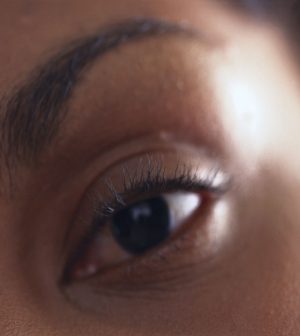- Could Your Grocery Store Meat Be Causing Recurring UTIs?
- Are You Making This Expensive Thermostat Error This Winter?
- Recognizing the Signs of Hypothyroidism
- 10 Strategies to Overcome Insomnia
- Could Artificial Sweeteners Be Aging the Brain Faster?
- Techniques for Soothing Your Nervous System
- Does the Water in Your House Smell Funny? Here’s Why
- Can a Daily Dose of Apple Cider Vinegar Actually Aid Weight Loss?
- 6 Health Beverages That Can Actually Spike Your Blood Sugar
- Treatment Options for Social Anxiety Disorder
How to Relieve Dry, Irritated Eyes

Do all the ads for dry eye relief have you thinking you could have this condition? If you’ve ever felt like you had a grain of sand in your eye when nowhere close to the beach, you could be experiencing dry eye.
Exactly what is dry eye? Simply put, it’s when you aren’t making enough tears to keep the front surface of the eye lubricated, or your tears don’t have enough water in them. Eyes can feel gritty, scratchy or like they’re burning. You might even notice excess watering or blurred vision.
Tear production often lessens with age, but it can also be the result of a medical condition — not only eye diseases but also rheumatoid arthritis, diabetes and thyroid problems. It can also be a side effect of certain medications, including antihistamines, decongestants, blood pressure medications and antidepressants. Living in a dry, windy climate or just sitting in front of a cozy fireplace in winter can cause tears to evaporate.
There’s much you can do to restore the normal amount of tears, according to the American Optometric Association, starting with over-the-counter artificial tear solutions, or prescription eye drops or ointments. See your eye professional to discuss the options and find out what’s most appropriate for you.
Lifestyle changes can also help. Try getting more omega-3 fatty acids in your diet. Treat your eyes to warm compresses and massage your eyelids. If you wear contact lenses, new formulations might be more comfortable. Blink regularly when reading or working at a computer for long periods of time. Also, increase the humidity in the air at work and at home, wear sunglasses to shield eyes outdoors, and drink eight to 10 glasses of water each day to stay hydrated.
More information
The American Optometric Association has more on dry eye from causes to treatment.
Source: HealthDay
Copyright © 2026 HealthDay. All rights reserved.










